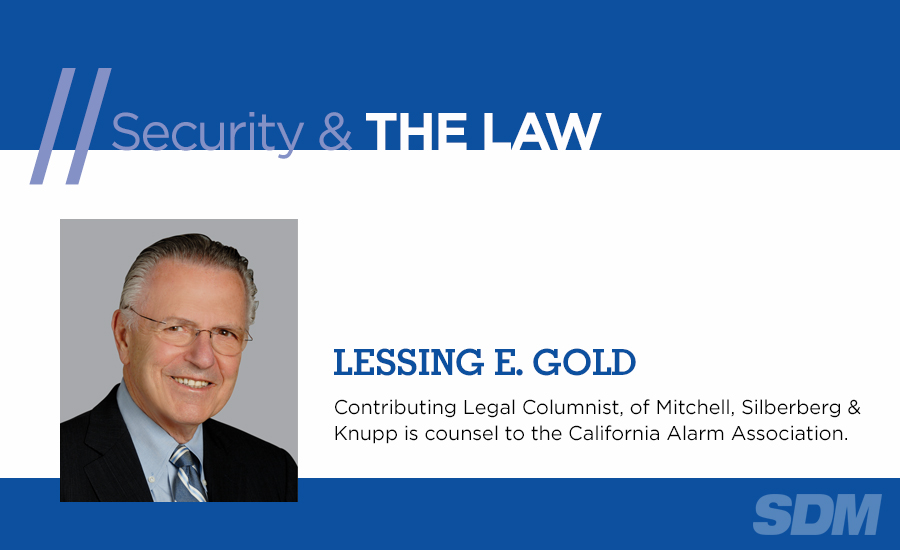A case involving a request for a preliminary injunction was recently heard in the United States District Court in Nebraska involving a question of what constitutes confidential information. An employee of a fire/ life safety company executed an “Acknowledgment and Receipt of Employee Handbook” in 2015, which defined confidential information as “information which is not generally known or readily ascertainable by the general public through proper means.”
In September of 2018, the employee’s job responsibilities changed, giving the employee regular access to the employer’s network drive that allegedly contained confidential information and trade secrets. The employee was issued a company laptop, tablet, iPad and smartphone to complete the tasks assigned to him. In March 2019, the employee resigned and began working for another fire company. On his last day he returned the devices and submitted evidence that he destroyed USB devices potentially containing the employer’s information.
After his resignation the employee began soliciting his former employer’s customers. More than 40 customers switched to the new employer. The former employer conducted a forensic analysis of the employee’s electronic devices, revealing that eight USB devices had connected to the employee’s devices (which contained confidential customer information) between January and March of 2019. The employer filed action in April 2019 and filed a motion for a temporary restraining order and preliminary injunction in May. On May 13, the court denied the employer’s temporary restraining order because he was not able to show that the employee was in possession of, or had disclosed, any confidential information. Nevertheless, the parties were allowed to conduct limited discovery before the hearing on the employer’s motion for preliminary injunction.
Discovery included a forensic analysis of several of the new employer’s computers, revealing that in March 2019, the employee sent an email to one of the new employer’s employees with several attachments, including one called “New estimate for.xlsx” (the “New Estimate Form”). The previous employer alleged that the New Estimate Form was confidential because it included that employer’s costs, profit margins, exclusive pricing and other information that could be used to undercut the employer’s bids.
At deposition, the employee admitted he forwarded the New Estimate Form to the new employer and that the form was on one of the USB devices he destroyed on his last day of work and he did not recall how he had access to the form after he left the previous employer.
The primary question when issuing a preliminary injunction is whether the balance of equities so favors the movant that justice requires the court to intervene to preserve the status quo until the merits are determined. The court looked at the threat to each of the parties’ rights that would result from granting or denying the injunction.
The court indicated that the information in the New Estimate Form could be used to gain a competitive advantage. The evidence also showed that the employee possessed the New Estimate Form and shared it with the new employer’s employees. However, the court said the evidence did not demonstrate a threat of irreparable harm to the employer, other than the data contained in the New Estimate Form.
The court therefore enjoined the employee from using the data in the New Estimate Form as the balance of harm weighs in favor of a preliminary injunction.
The employer’s Motion for a Preliminary Injunction was granted: “During the pendency of this action and until its final hearing and determination, Employee, and any persons or entities acting in concert with him or on his behalf, are enjoined from directly or indirectly using, disclosing, or transmitting any data contained in the New Estimate Form or any information contained therein or derived therefrom.”
READERS ASK
Q: When can you sue a municipality, the fire department or the police for their negligence?
A: Normally, a municipality and its employees are protected by the doctrine of sovereign immunity. To get around sovereign immunity, there must ordinarily be a special relationship. Courts have held that a special relationship exists: 1. when the municipality violates a statutory duty enacted for the benefit of a particular class of person; 2. when it voluntarily assumes a duty that generates justifiable reliance by the person who benefits from the duty; or 3. when it assumes positive direction and control in the face of a known, blatant, and dangerous safety violation.






